LILLEY: Carney's 'ethics disclosure' raises plenty of questions
PM's Elbows Up rhetoric doesn't appear to include his own personal investments, according to data released by the ethics commissioner

Article content
Investments in companies like Chevron, Marathon, Occidental and Valero litter Mark Carney’s investment portfolio. That means our prime minister, the man who spent years lecturing the world about green energy and decarbonization, has been making money from oil exploration, drilling, refining and pipelines.
He may still be profiting from those activities, we simply don’t know.
The companies mentioned are just four of several “conventional energy companies” listed in his ethics disclosure released late last week.
Carney came under pressure after becoming Liberal leader and during the federal election to release his investment holdings to clear up any potential conflicts of interest. He refused, claimed several times that he had no conflicts of interest, got testy with reporters who dared to ask him questions, and said he was following all the rules.
Sure, Carney may have followed the letter of the law, which only required these investments to be made public after the election, but he didn’t follow the spirit of full disclosure.
“There’s no possible conflict of interest in your assets?” CBC journalist Rosemary Barton put to Carney in March of this year. “That’s hard to believe.”
“Look inside yourself, Rosemary,” Carney replied, before lecturing her about assuming there was a conflict.
Well, his disclosure forms are out, and he must step out of the room anytime he talks about “any official matters or decision-making processes” that could impact 103 companies or funds listed in his disclosure. That list includes Brookfield Asset Management, where he was chair of the board, includes Stripe, the payment processing firm, and more than 100 other companies.
Beyond the 103 entities that Carney must recuse himself from, there are hundreds more listed where he had investments in areas in which he and his government will be making decisions.
Carney is talking about approving greater natural resources development including oil, natural gas and pipelines, and many of his investments are in those fields. He also has held large investments in green energy, and he’s promised to make Canada a green energy superpower.
Many of the green energy companies are among the 103 he must recuse himself from decisions on.
His portfolio, now in a blind trust, included shares of Bank of America, Citigroup, JP Morgan Chase & Co, U.S. Bank, Fifth Third Bancorp, along with several other smaller American banks. Not listed were shares of any of Canada’s large banking companies including TD Bank and BMO, which have become major players in the American banking sector.
He owns, or owned, shares in American Airlines, Delta, Southwest, and United, but not Air Canada, the main publicly traded airline in our country.
A review of Carney’s investments prior to becoming prime minister of Canada would show that he has very little invested in Canada or Canadian companies.
He is, or was, however, invested in Airbnb, Amazon, Doordash, Netflix, and Uber, all companies that could have been hit by Canada’s proposed Digital Services Tax. It may even have applied to Stripe – the company Carney was on the board of until he entered politics. All of these companies could have been facing the Digital Services Tax, had it gone forward instead of being stopped by Carney at the last minute.
The tax, opposed by all sides in the United States, was supposed to come into force on June 30 but was put on hold with a promise that legislation would come forward to rescind it entirely in the future, just hours before it was supposed to be imposed.
Can we really say, or be sure, that Carney recused himself from that decision? He may not have been required to at the time, but could potentially have benefitted from it greatly.
RECOMMENDED VIDEO
By the way, the reason we need to say that he is or was invested in these companies is that the investments may have been sold off, or they could still be held. The truth is, we don’t know because of our weak rules surrounding disclosure and Carney’s refusal to be open with the public.
We also don’t know if these were small investments or significant ones — we just know that they once existed.
Carney worked at Goldman Sachs for 15 years, making deals for them around the world and making lots of money. He then went into public service with the Finance Department in Ottawa and the Bank of Canada before taking a position as governor of the Bank of England.
Between leaving that job in 2020 and entering politics in January 2025, he made millions in the private sector and put much of it into investments that continue to pad his bottom line. That’s all good for him, but without transparency, how can Canadians know that Carney is making decisions in our best interests and not his own?
If the ethics rules need to be improved upon then let’s do it, but Carney could clear a lot of this up by just being open with the public.








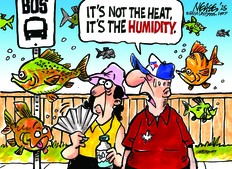
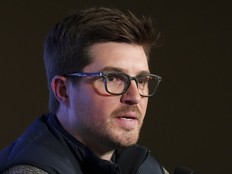
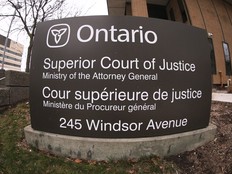
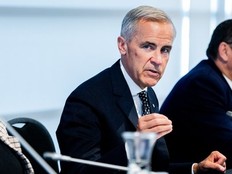
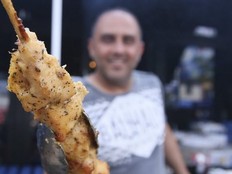

Postmedia is committed to maintaining a lively but civil forum for discussion. Please keep comments relevant and respectful. Comments may take up to an hour to appear on the site. You will receive an email if there is a reply to your comment, an update to a thread you follow or if a user you follow comments. Visit our Community Guidelines for more information.